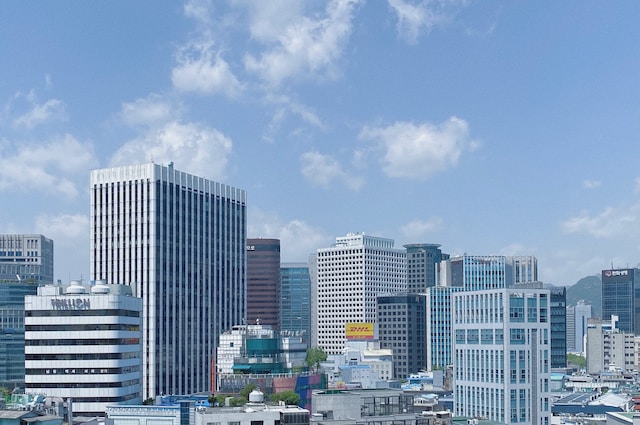South Korea's Record FDI in 2023 and the Rising Tide

In 2023, South Korea has emerged as a stellar example of economic resilience, evidenced by a significant surge in Foreign Direct Investment (FDI). This growth is not just a testament to the country's robust economic fundamentals but also to its strategic positioning in the global market.
The Evolving Landscape of FDI in South Korea
The trajectory of South Korea's FDI has been marked by consistent growth and diversification. As of June 2023, the country recorded an FDI increase of $2.558 billion, reflecting sustained investor confidence. This trend is a continuation of the previous years' growth, with FDI inflows reaching $22.06 billion in 2021 and $17.996 billion in 2022. South Korea's appeal as an investment destination is attributed to its rapid economic development, specialization in ICT, and a highly developed business environment, despite the challenges posed by the COVID-19 pandemic.
Strategic Sectors and Economic Policies
The South Korean economy, known for its technological prowess and innovation, has been actively attracting investments in high-tech sectors. These include artificial intelligence (AI), big data, cloud computing, electric cars, and biotechnology. The government's focus on these areas underlines its commitment to fostering a knowledge-based economy. Policies such as the Foreign Investment Promotion Act have been instrumental in this growth, balancing the need to attract FDI while ensuring the protection of sensitive technologies and national interests.
Government Measures and Regulatory Framework
The South Korean government has played a crucial role in shaping the FDI landscape through various measures. The Ministry of Trade, Industry and Energy (MOTIE) administers foreign direct investments under the Foreign Investment Promotion Law (FIPL) and the Foreign Exchange Transaction Law (FETL). In addition to these laws, the Act on Prevention of Divulgence and Protection of Industrial Technology (ITPA) governs the transfer of National Core Technologies to foreign entities. These regulatory frameworks ensure that while the country remains open to foreign investments, it also safeguards critical technological and industrial sectors.
Opportunities Amidst Challenges
While South Korea offers lucrative opportunities for foreign investors, it also presents certain challenges. The dominance of large industrial conglomerates, known as chaebols, and the high cost of manpower are factors that new entrants need to navigate. Despite these challenges, the country’s strengths such as a highly skilled workforce, advanced R&D capabilities, dominant position in electronics, and strong international financial position make it an attractive destination for FDI. The continuous growth in areas like AI and biotechnology also presents new avenues for investment.
Sectoral Analysis of FDI Inflow
A deeper look into the sectoral distribution of FDI reveals a strategic shift towards advanced manufacturing and services. The manufacturing sector, particularly electronics and chemicals, has seen a robust influx of foreign capital. Similarly, the services sector, including finance, hospitality, and information and communication, has also attracted significant FDI. This diversification underscores the multifaceted nature of the South Korean economy and its capability to adapt to changing global economic trends.
Regional Dynamics and Global Integration
South Korea's FDI growth is also a reflection of its expanding global partnerships. While there has been a decline in Japanese investments, the country has seen increased FDI from regions like the EU, China, and the United States. This diversification not only enhances Korea’s economic resilience but also cements its position as a key player in the global economic landscape.
Economic and Social Implications
The influx of FDI has far-reaching implications for Korea's economy and society. It drives job creation, technological advancement, and strengthens the country’s competitiveness globally. Moreover, this investment wave is expected to fortify domestic supply chains, spur further innovation, and contribute to sustainable economic growth.
Conclusion
In conclusion, South Korea's FDI narrative in 2023 is a robust testament to its strategic vision, resilient policies, and attractiveness as a global investment hub. As the country continues to navigate the complexities of the global economy, it is poised to remain a key destination for foreign investors. This trend not only highlights the dynamic economic landscape of South Korea but also offers insights into the potential pathways for continued prosperity and growth in an interconnected world.
Pearson & Partners: Your Expert Partner in Korean Market Expansion. Are you considering expanding your business into the dynamic Korean market? Let Pearson & Partners be your guide. We specialize in providing comprehensive visa acquisition and tax accounting services, ensuring a seamless transition. Our team is adept at navigating the complexities of Korean regulations, guaranteeing a compliant and smooth business setup. We're here to assist you every step of the way. Contact us today for expert guidance that’s precisely tailored to meet your unique business objectives and regulatory needs.
.png?width=1656&height=121&name=rsz_%EB%A1%9C%EA%B3%A0%ED%88%AC%EB%AA%85%20(8).png)

